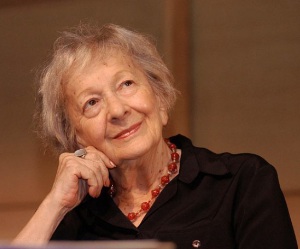Pop culture wins in more than one area in 2016.
In October when the Swedish Academy awarded the Nobel Prize in Literature to Bob Dylan, I questioned its appropriateness. Wasn’t the creation of a separate category more in order than pronouncing Dylan’s lyrics an accomplishment in world literature considering that songwriting spans the realms of music and literature? I recognize that poetry no longer has a general readership and that most Americans’ exposure to poetry today comes solely through song lyrics. I have no elitist quarrel with this state of affairs, for clearly poetry has its roots in an oral tradition. Yet the gushing of some authors such as Salman Rusdie and Joyce Carol Oates over Dylan’s award struck me as excessive and unwarranted. The Academy justified the award because Dylan “had created new poetic expression within the great American song tradition”–a peculiar rationale, which seemed to justify a new category–songwriting–not a prize for outstanding accomplishment in literature.
I wondered if I was missing something. Did others see literary merit where I had only heard successful popular folk music that I had enjoyed while growing up? I wondered if the lyrics would impress me as great poetry when I read them on the printed page. I determined to read all of Dylan’s lyrics and to formulate my own judgment. With this purpose in mind, I ordered the 679-page volume of The Lyrics 1961-2012.
It has taken me two months to read the entire book. By page 100, I was bored. Granted, there are some clever lines scattered here and there; but I didn’t see enough meat on the bones to pronounce this great poetry. I struggled to finish the book, only able to read a few pages at a time. Much is monotonous, boring, silly, lame, and the usual mournful love laments. The lyrics are dependent on refrain and repetition and are often rather banal. Dylan is a genius in use of rhyme, but on the printed page they come across as too forced. “Blowin’ in the Wind,” of course, stands out as rising above the ordinary lyric and reads well as a poem. Much of what I read is pure doggerel, light verse à la limerick. Did the Academy members actually read all of the complete lyrics? How did they stay awake for the duration?
About page eighty-five the language is becoming more political, and in “One Too Many Mornings,” Dylan creates one of his memorable refrains: For I’m one too many mornings/And a thousand miles behind. A good example of his word wizardry that everyone enjoys occurs in “All I Really Want to Do:” I don’t want to meet your kin/Make you spin or do you in/Or select you or dissect you/Or inspect you or reject you. Or these unforgettable lines in “My Black Pages:” Ah, but I was so much older then/I’m younger than that now. Of the intermittent lyrics that I consider crossing the border into what may be termed literary in the canonical sense is “Chimes of Freedom” in which the one-line, end-of-stanza refrain is not overdone and the line Through the wild cathedral evening the rain unraveled tales/for the disrobed faceless forms . . . possesses the fresh, vivid imagery, assonance and consonance my senses love in fine poetry.
But moments of verbal virtuosity are lost in pages of verse that are flat and trite. There are too many to choose from, but I’ll settle on this from “I Shall Be Free No. 10:” Now they asked me to read a poem/At the sorority sisters’ home/I got knocked down and my head was swimmin’/I wound up with the Dean of Women/Yippee! I’m a poet, and I know it/Hope I don’t blow it. Ogden Nash could do better. Dylan’s gymnastics with rhyme augurs the rise of rap and hip hop at the end of the twentieth century.
Half-way through the book, I began to note poems that seemed to transcend the jingle-jangle of merely a song lyric. “Tin Angels,” “Golden Loom,” and “Romance in Durango” (a bilingual ballad) have glimmers of more substance, and “Too much of Nothing” has the clever line evocative of Dylan’s social commentary. Then I rejoice, hearing the sounds of my favorite song lyrics in “Forever Young,” and “Simple Twist of Fate.” Am I swayed by memories of listening to these songs, or are they also good, if not great poems? The Academy’s consensus apparently was that Dylan’s body of work rose above the trite and time-worn found in love ballads and folk songs. I am not so sure, especially, when I come to this final verse in “Where Teardrops Fall” toward the end of the volume: Roses are red, violets are blue/And time is beginning to crawl/I just might have to come see you/Where teardrops fall. Sometimes Dylan runs out of steam in playful language and his last lines bomb into vacuity. Is that his intention? Laughing at his own verbal play? Here’s another ending from “Dignity:” Sometimes I wonder what it’s gonna take/To find dignity. Here I hit the bottom of an empty well.
We have another figure of pop culture rising to prominent heights this year: Donald J. Trump, impresario of the TV reality show “The Apprentice.” Pop culture has colored the nation’s judgment, taste, manners, and morals. So should I really wonder at the Swedish Academy’s wisdom in selecting Bob Dylan as recipient for the Nobel Prize in Literature? Can the world at large discern quality in literature any better than the general electorate of the United States can distinguish character and fitness for office among political candidates? Pop culture has triumphed in all spheres of life. Pop culture is largely entertainment and is supposed to be fun. I don’t fault it for being that, but I do fault those who are unable to appreciate that dealing with important national and global issues is no laughing matter.
